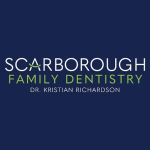- 1. The Benefits of Tooth Cleaning Devices
- 2. Types of Tooth Cleaning Devices Available
- 3. How to Choose the Right Tooth Cleaning Device for You
- 4. Real-Life Examples: Success Stories with Tooth Cleaning Devices
- 5. Frequently Asked Questions About Tooth Cleaning Devices
The Benefits of Tooth Cleaning Devices
Tooth cleaning devices have transformed the way we care for our teeth. Whether you're trying to avoid plaque buildup or looking to maintain optimal oral hygiene, these devices offer several advantages over traditional methods like brushing alone. By incorporating advanced technology, they provide more effective cleaning, reach areas that are difficult for manual brushing, and help prevent oral health issues like gum disease and cavities.
Types of Tooth Cleaning Devices Available
There is a wide variety of tooth cleaning devices on the market today. Some of the most popular options include:
1. Electric Toothbrushes
Electric toothbrushes are designed to offer a deeper clean compared to manual brushing. They use high-frequency vibrations to remove plaque and bacteria, making brushing more efficient.
2. Water Flossers
Water flossers, also known as oral irrigators, use a stream of pulsating water to clean between the teeth and along the gumline, offering a great alternative to traditional flossing.
3. Ultrasonic Tooth Cleaners
Ultrasonic toothbrushes utilize high-frequency sound waves to break down plaque and bacteria, offering an even deeper clean compared to regular electric toothbrushes.
How to Choose the Right Tooth Cleaning Device for You
Choosing the right tooth cleaning device depends on your specific oral health needs and preferences. If you're prone to plaque buildup or gum issues, an electric toothbrush with built-in timers and pressure sensors might be a great fit. On the other hand, if you struggle with flossing or have braces, a water flosser could be a perfect addition to your routine. It's essential to consult with your dentist to determine which device aligns best with your oral health goals.
Real-Life Examples: Success Stories with Tooth Cleaning Devices
Consider the story of Sarah, who had long struggled with maintaining her oral hygiene due to sensitive gums and difficulty flossing. After using an electric toothbrush combined with a water flosser, Sarah saw significant improvement in her gum health and plaque reduction within just a few weeks. Similarly, John, a frequent coffee drinker, turned to an ultrasonic cleaner to help whiten his teeth and eliminate stubborn stains, achieving noticeable results without harsh chemicals.
Frequently Asked Questions About Tooth Cleaning Devices
1. Are tooth cleaning devices better than manual brushing?
Yes, tooth cleaning devices, such as electric toothbrushes, are generally more effective than manual brushing due to their superior brushing power and ability to reach difficult areas. They also often come with additional features like timers and pressure sensors to ensure optimal brushing technique.
2. How often should I use a tooth cleaning device?
It’s recommended to use a tooth cleaning device, like an electric toothbrush or water flosser, at least twice a day as part of your regular oral care routine. However, some devices, like ultrasonic cleaners, can be used more frequently for specific needs, such as whitening or plaque removal.
3. Can tooth cleaning devices help with bad breath?
Yes, many tooth cleaning devices can help eliminate bacteria and food particles that contribute to bad breath. Water flossers, in particular, are great at cleaning between the teeth and along the gumline, which helps reduce odors caused by trapped debris.







 Sims Dentistry of Louisville4.0 (192 review)
Sims Dentistry of Louisville4.0 (192 review) Doc Bresler's Cavity Busters4.0 (384 review)
Doc Bresler's Cavity Busters4.0 (384 review) Rigby Dental - West Jordan4.0 (944 review)
Rigby Dental - West Jordan4.0 (944 review) Chandler Family Dentistry: Chaiyoon Cho, DDS4.0 (198 review)
Chandler Family Dentistry: Chaiyoon Cho, DDS4.0 (198 review) Scarborough Family Dentistry4.0 (13 review)
Scarborough Family Dentistry4.0 (13 review) Dr. Jay Lackman D.M.D., LLC4.0 (24 review)
Dr. Jay Lackman D.M.D., LLC4.0 (24 review) The Importance of Oral Health Education During Pregnancy for a Healthy Pregnancy
The Importance of Oral Health Education During Pregnancy for a Healthy Pregnancy Best Tips for Brushing Your Teeth Properly for Healthy Gums: Essential Techniques for Oral Health
Best Tips for Brushing Your Teeth Properly for Healthy Gums: Essential Techniques for Oral Health Why Skipping Dental Checkups Can Lead to Bigger Oral Health Problems
Why Skipping Dental Checkups Can Lead to Bigger Oral Health Problems Advantages of Porcelain Dental Restorations
Advantages of Porcelain Dental Restorations How Can Diabetes Cause Tooth and Gum Problems? Preventing and Managing Oral Health Issues
How Can Diabetes Cause Tooth and Gum Problems? Preventing and Managing Oral Health Issues Healthy Habits for Promoting Good Oral Health and Hygiene: Tips for a Healthy Smile
Healthy Habits for Promoting Good Oral Health and Hygiene: Tips for a Healthy Smile